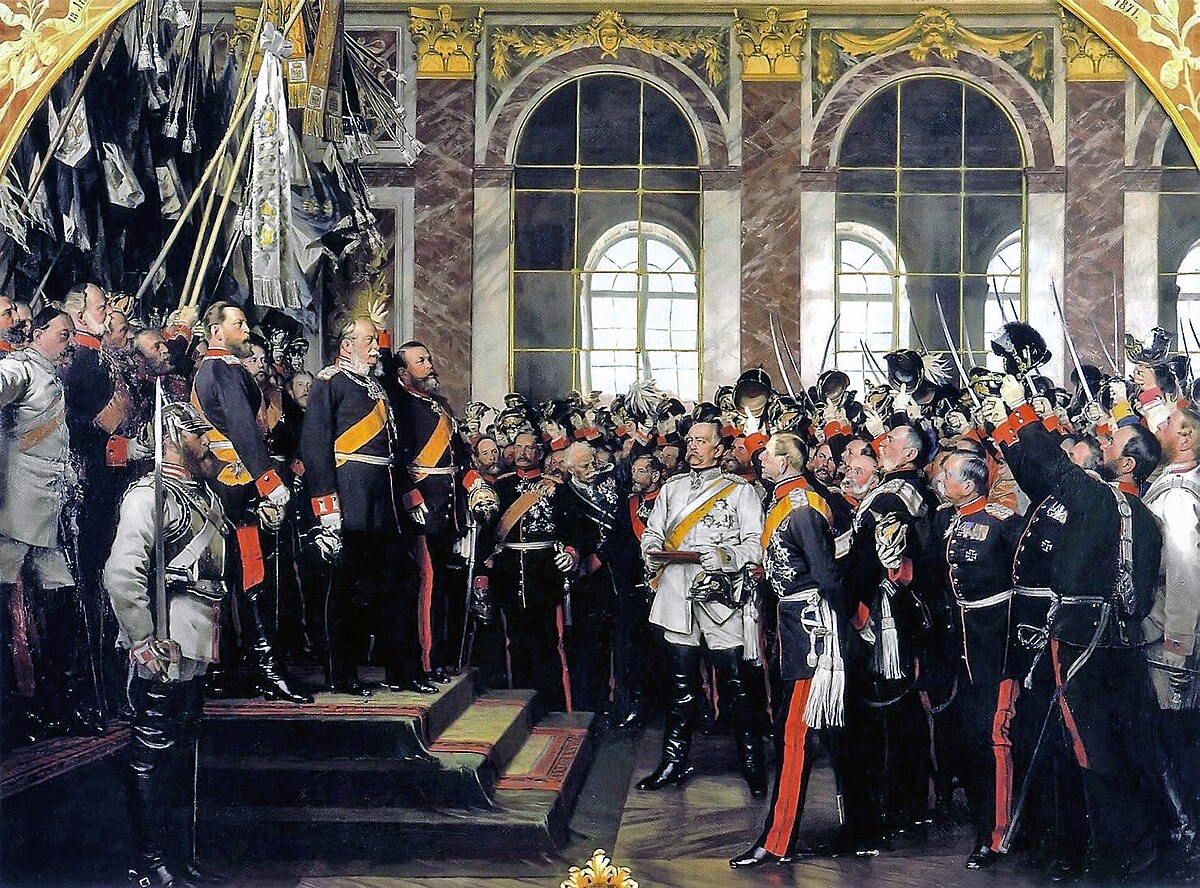
German Empire and Unification
GermanyThe German Confederation ended as a result of the Austro-Prussian War of 1866 between the constituent Confederation entities of the Austrian Empire and its allies on one side and Prussia and its allies on the other. The war resulted in the partial replacement of the Confederation in 1867 by a North German Confederation, comprising the 22 states north of the river Main. The patriotic fervor generated by the Franco-Prussian War overwhelmed the remaining opposition to a unified Germany (aside from Austria) in the four states south of the Main, and during November 1870, they joined the North German Confederation by treaty.
During the Siege of Paris on 18 January 1871, William was proclaimed Emperor in the Hall of Mirrors at the Palace of Versailles and subsequently the Unification of Germany occurred.
Although nominally a federal empire and league of equals, in practice, the empire was dominated by the largest and most powerful state, Prussia. Prussia stretched across the northern two-thirds of the new Reich and contained three-fifths of its population. The imperial crown was hereditary in the ruling house of Prussia, the House of Hohenzollern. With the exception of 1872–1873 and 1892–1894, the chancellor was always simultaneously the prime minister of Prussia. With 17 out of 58 votes in the Bundesrat, Berlin needed only a few votes from the smaller states to exercise effective control.
The evolution of the German Empire is somewhat in line with parallel developments in Italy, which became a united nation-state a decade earlier. Some key elements of the German Empire's authoritarian political structure were also the basis for conservative modernization in Imperial Japan under Meiji and the preservation of an authoritarian political structure under the tsars in the Russian Empire.
